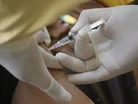Exploring Africa's Vaccine Manufacturing Challenges

Vaccine accessibility should be a human right, yet it often functions as a privilege. The African subcontinent highlights this inequality, as it is home to many countries which are currently unable to manufacture their own vaccines.
With Africa making up 20% of the global population, its vaccine industry contributes less than 1% to the worldwide provision. Over 99% of vaccines are imported into the continent, making these nations susceptible to disease outbreaks and reliant on external support. The COVID-19 pandemic underlined the severe lack of vaccine production and health technologies in Africa, a gap that was starkly evident as the continent faced major vaccine shortages despite a global increase in vaccine production to 1.5bn doses per month. This dependence slowed the vaccination process across Africa, compared to regions like Europe and the US, leading to wider spread and more deaths that could have been prevented.
Economic and manufacturing challenges
In March 2022, Moderna planned to construct a US$500m mRNA vaccine production facility in Kenya, which would focus on producing vaccines that could be quickly adapted to combat various diseases. This project was aimed at producing 500m vaccine doses each year.
Moderna was founded in 2010 and is focused on mRNA technology, which carries instructions across the body, instructing cells what to do. The company is fully committed to delivering on the promise of mRNA science for patients everywhere.
Barbara Salami joined Moderna as Vice President of Digital for Commercial, to help build the company’s digital for commercial capability, in 2020.
“Our platform has a huge opportunity to go beyond COVID-19 to transform how we deliver medicine to the world across multiple modalities and therapeutic areas – such as immunology, virology and rare diseases among others. The opportunities are limitless,” she says.
Yet, lack of orders from African nations led to Moderna withdrawing from the agreement, having faced significant financial losses. The decision not to order from Moderna has been influenced by the continent's reliance on more affordable vaccines from countries like India, known as the 'pharmacy of the world'. This is exemplified by South Africa's choice to order vaccines from Indian firm Cipla, despite having local mRNA production capacity at Biovac. The choice was dictated by economic considerations, echoing a broader issue where local production is bypassed to enable cost savings for other health priorities.
Tackling brain drain and technological gaps
The term 'brain drain' refers to the emigration of highly skilled individuals, a significant issue for Africa. With many educated and skilled Africans moving to countries like the UK, US, Canada and France, the continent suffers a shortage of professionals in key sectors, including healthcare. For instance, a substantial number of NHS staff in the UK come from African countries. This migration depletes local resources necessary for advancing healthcare infrastructure, including vaccine production.
The technological challenges are also acute, with several nations lacking the required infrastructure to support robust vaccine manufacturing. This issue is compounded by a shortfall in skills and training necessary to operate advanced production processes.
Without addressing these gaps and providing sufficient technology transfer, Africa's aspirations for establishing a sustainable vaccine manufacturing landscape remain uncertain.
******
Make sure you check out the latest industry news and insights at Healthcare Digital and also sign up to our global conference series - Tech & AI LIVE 2024
******
Healthcare Digital is a BizClik brand
- Why Bill Gates & OpenAI Invest in AI Healthcare in AfricaTechnology & AI
- WHO: Inside Global Vaccine Manufacturing & Supply ChainsProcurement & Supply Chain
- HIV Testing Landmark Highlights Ongoing AIDS ProblemsProcurement & Supply Chain
- Tackling the healthcare burnout epidemic: Analytics antidoteTelehealth & COVID-19




